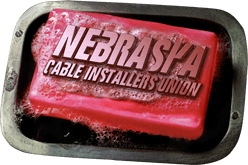
When partners in a budding sports agency wanted to do business with Robert Williams, then a basketball star at Texas A&M with bright pro prospects, they did so with a bold show of good faith: They bought a pair of sneakers, stuffed $11,000 alongside the shoes in their box and shipped the entire package, via FedEx, to Williams.
The plan, laid out in a Manhattan courtroom by a financial adviser turned government witness, was one of several stunning revelations Thursday in the bribery trial of a would-be agent and a fired shoe-company consultant.
Still in its first week, the trial has already lifted the veil over the shadowy world of college basketball recruiting — offering detail that is both rare and, because of video surveillance by the F.B.I., remarkably vivid.
In addition to the payment in a shoe box, testimony has focused on details about a Las Vegas hotel suite in which coaches accepted cash-stuffed envelopes; about meetings where promises of “whatever you need” were made to help land top recruits; and of a shrugging acknowledgment that under-the-table payments were routine business in an ostensibly amateur sport.
Some of the most shocking details were revealed Thursday during the second day on the witness stand for Marty Blazer, a financial adviser who became an informant after being charged with a series of fraud counts involving his clients, including N.F.L. players.
The surreptitious video and audio recordings that were played on Thursday portrayed the two defendants — Christian Dawkins, a former associate of the discertified agent Andy Miller, and Merl Code Jr., who worked 14 years for Nike before jumping to Adidas — as operators who hoped to leverage their contacts in grass-roots basketball into a business representing players when they grew into N.B.A. pros.
They even had an ambitious target: Zion Williamson, who is expected to be the top pick in the N.B.A. draft in June.
In the summer of 2017, Dawkins sat on a sofa in a suite at the Cosmopolitan Hotel in Las Vegas alongside the Clemson assistant coach Steve Smith and, with Blazer and an undercover F.B.I. agent posing as a bankroller, laid out a plan for landing Williamson, then a top-tier prospect who had just finished his junior year at a South Carolina high school.
Smith boasted that he was from the same hometown as Williamson’s mother, and that he had set up a meeting with Williamson’s stepfather the next day in Lake Las Vegas — far from any prying eyes on the Las Vegas Strip. He also suggested that, through his efforts, Clemson was a significant contender to land Williamson, who also was being recruited by North Carolina, Kansas, Kentucky and Duke (where he ultimately landed).
Dawkins instructed Smith to let him know how the meeting with the stepfather had gone. “We’ll be able to make sure everything’s good for the parents and everything like that,” he said.
Asked by the prosecutor Eli Mark what Dawkins meant, Blazer said: “Duke, U.N.C. and Kentucky will have people in place to pay for whatever is necessary to recruit Zion Williamson. Whatever Zion Williamson’s family needed, we would be able to step in.”
Coaches cycled through the suite over two days, as if on an assembly line, according to the testimony. Smith left without any money, unlike three other assistant coaches, according to the video and testimony: Tony Bland of Southern California, Preston Murphy of Creighton and Corey Barker of Texas Christian, who were handed envelopes containing, respectively, $13,000, $6,000 and $6,000.
The money given to Bland, Blazer testified, was to be passed to Marvin Bagley III, a prospective U.S.C. recruit.
Bland was certain that Bagley, who had moved to Los Angeles from Arizona in high school, would end up at U.S.C., and he pledged to ensure that Dawkins would meet Bagley the first day he was on campus.
“This is the type of dude that, you get him, everybody will follow,” Bland told Dawkins, Blazer and the undercover agent on a video.
He was wrong. Bagley chose Duke and entered the N.B.A. draft after only one college season, becoming the second overall pick. He just completed his rookie season with the Sacramento Kings.
Bland, who was fired by U.S.C., has pleaded guilty to bribery.
In an earlier meeting in New York, when Code and Dawkins were introduced to the undercover agent, who they thought would be bankrolling their nascent operation, they explained in a recorded video how the business worked.
There were others who operated just like them, they said, and the objective was not necessarily to steer players from grass roots/grass-roots programs merely to a college sponsored by Nike or Adidas, but to direct them to a place where they could continue a relationship that would extend to the N.B.A. — where the money invested by agents would be returned through lucrative contracts and endorsement deals.
For Code, that meant any college the player wanted to attend was fine — as long as it wasn’t Kentucky or Oregon, two programs that were not only firmly in Nike’s camp but also linked to agents and others aligned with Nike.
“If I let my kid go to Kentucky, I promise you I won’t get him back,” Code said.
That appeared to be why, according to Thursday’s testimony, he handed over a cash-filled envelope for Bland to funnel to Bagley, why he cultivated relationships with assistant coaches who might be put on the agents’ payroll and why the shoe box of money was sent to Williams, who is now a member of the Boston Celtics.
Even payoffs, though, were not a guarantee, Code said; sometimes players or their families would be paid $100,000 or more and then turn on those who had supplied it and sign with another agent.
“I’m surprised there aren’t more murders in our space,” Code said in one recorded video.
“There really should be,” Dawkins added with a laugh.
